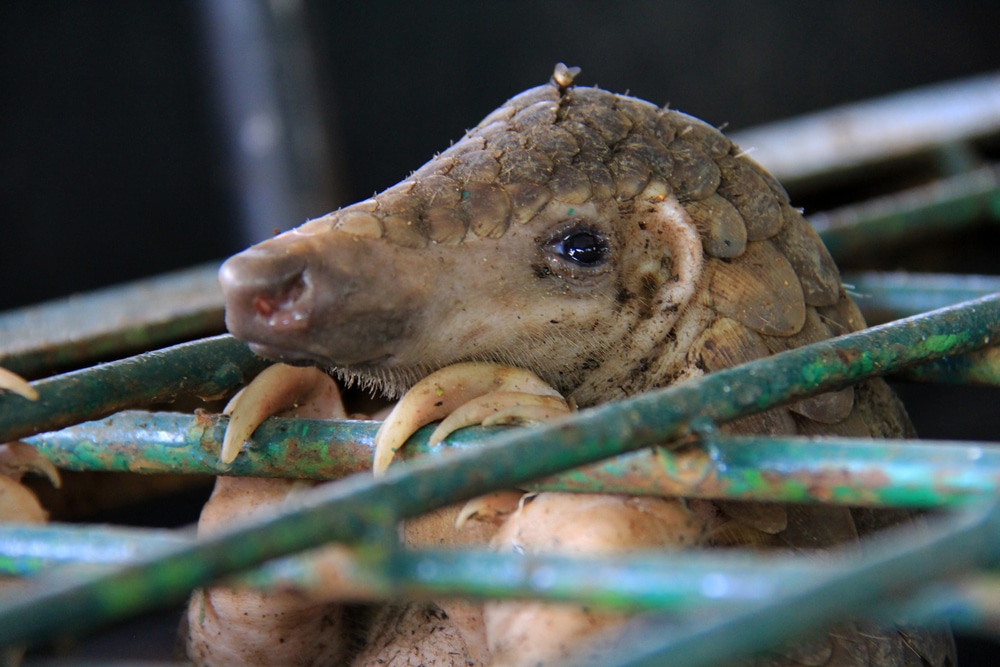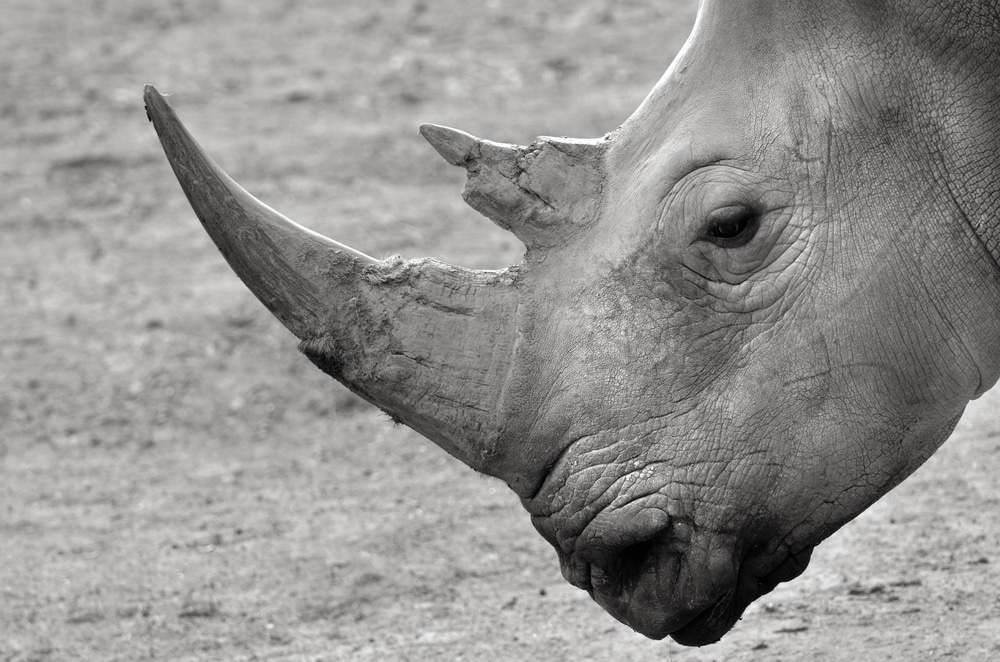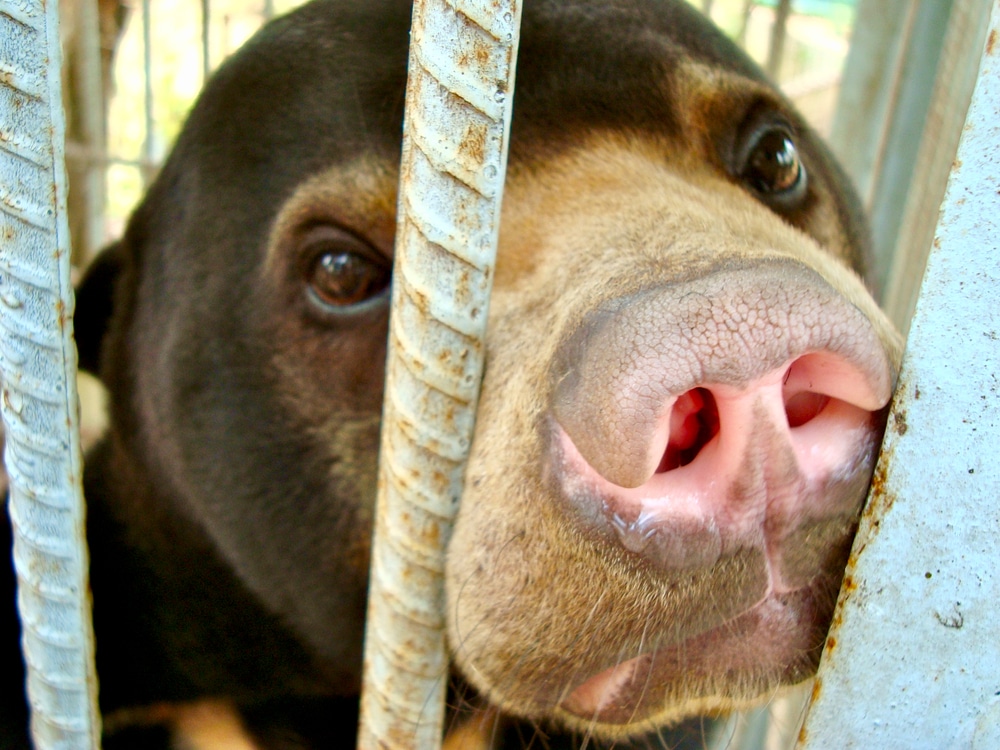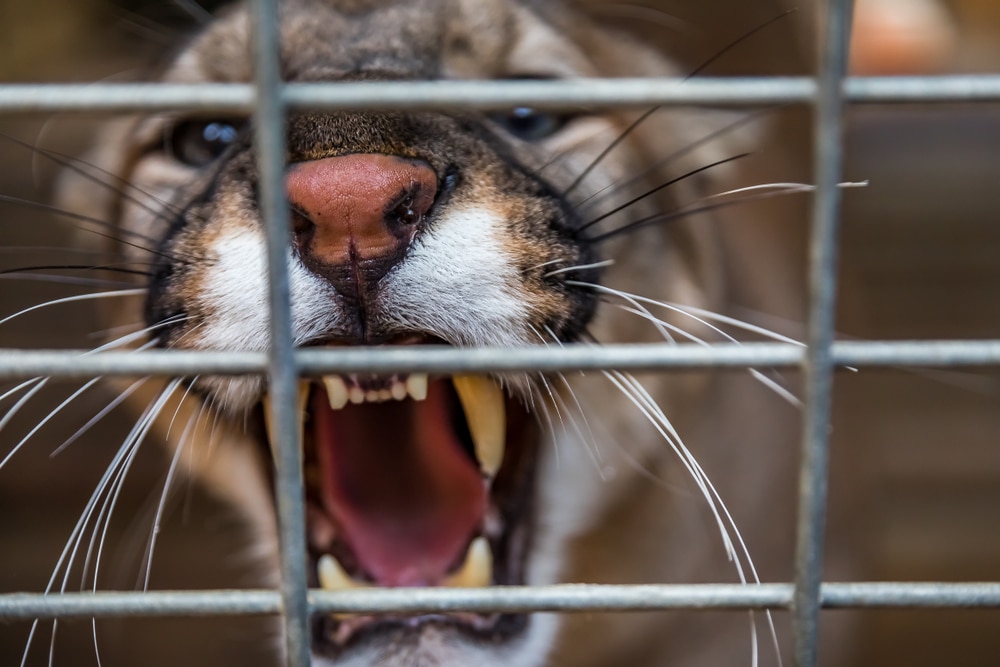
Threats to wildlife come from multiple sources, including climate change, destruction of natural habitats, deforestation and pollution. However, the illegal wildlife trade contributes significantly to the problem through poaching. Wildlife trafficking has far-reaching implications, not just for the animals involved but for the entire ecosystem. It disrupts the interconnected web of life, leading to cascading effects that compromise biodiversity, disrupt ecological processes, and endanger the survival of numerous species.

Illegal wildlife trade involves the unlawful capture, sale, or exchange of live animals, their body parts, or derivatives. This illicit practice is driven by a demand for exotic pets, traditional medicines, and luxury goods, creating a lucrative black market that operates in the shadows. The clandestine nature of wildlife trafficking makes it challenging to quantify its full extent, but its impact is undeniably vast.
Despite efforts to combat wildlife trafficking, the demand for pangolin scales, elephant tusks, rhino horns, shark fins, tiger skins, etc., continues to rise. As a result, poachers, traffickers, and highly organized criminal networks are motivated to ruthlessly pursue the animals at any cost to meet this demand.
For example, the surge in demand for rhino horns between 2007 and 2013 saw a 7,700% increase in rhino poaching in South Africa. The biggest challenge to halting this trade is the lack of effective law enforcement controls along the trade routes. Once the animal parts are within a country’s borders, it becomes hard to tell legal from illegal.
According to National Geographic, poaching is a primary reason why animals face a risk of extinction. Today, there are only about 27,000 rhinos, 5,574 tigers and 415,000 African elephants in the wild. Many shark species are also under threat due to the demand for their fins. The alarming reality underscores the urgent need for comprehensive and coordinated global action to address the root causes of this illegal trade.
Let’s explore the profound impact of the illegal wildlife trade.

Biodiversity is the health and wealth of nature. Its loss undermines the ecosystem’s ability to function efficiently and effectively and, therefore, undermines nature’s ability to support a healthy environment.
Illegal wildlife trade is a significant driver of biodiversity decline, as it directly targets a wide range of species, including those already facing threats from habitat loss and climate change. The removal of specific species through poaching disrupts the intricate web of interactions within ecosystems. This disruption can lead to imbalances in predator-prey relationships, altered vegetation dynamics, and changes in the abundance of various species.
Many species involved in illegal wildlife trade are already endangered or at risk of extinction. The demand for products derived from these species, such as ivory, horns, and skins, puts immense pressure on their populations, often leading to declines that may result in extinction.
The extinction of a species means the permanent loss of its unique genetic material and ecological role. This loss can have cascading effects on the entire ecosystem, impacting other species that depend on the extinct species for various environmental functions.
Genetic diversity within populations is crucial for their ability to adapt to changing environmental conditions. Illegal wildlife trade reduces population sizes and genetic diversity and increases the vulnerability of species to diseases. Populations with limited genetic diversity may struggle to adapt to environmental changes, like those induced by climate change or habitat alterations.
Wildlife exploitation can also create sex-ratio imbalances and slow the reproduction rate of endangered species. Elephant poaching, for instance, targets males with large tusks and leaves a severe gender imbalance among African elephants.

Keystone species like tigers, elephants, bears, tigers, sharks, and other habitat engineers play critical roles in maintaining the structure and function of ecosystems. Tigers and other apex predators regulate the populations of herbivores, while large herbivores like elephants and bears disperse seeds and modify vegetation through their movement and feeding.
Poaching disrupts these processes. For example, removing apex predators allows the herbivore population to surge. This can lead to overgrazing, which in turn affects plant communities and the animals that depend on them.
The illegal wildlife trade is an environmental issue as well as a matter of global security. The vast sums of money involved in this illicit trade often contribute to funding organized crime, including drug trafficking and money laundering. In some cases, these funds may even support extremist groups and fuel armed conflicts. The intertwining of the illegal wildlife trade with other forms of transnational crime poses a threat to global security, stability, and governance.
The conditions under which wild animals are kept and transported during illegal wildlife trade create a potential hotspot for the transmission of zoonotic diseases—those that can jump from animals to humans. This poses a serious public health risk, as witnessed with bacterial, viral and parasitic diseases. The proximity of different species in these trade networks increases the likelihood of disease transmission, underlying the need for measures to prevent the spread of infectious diseases.
Hunters and poachers often carry guns and other weapons to capture, kill and collect wildlife. But they can also use these on rangers, local people, police or conservation officials who protect or live close to the endangered animals and plants.
Reports show that about 150 rangers die worldwide every year in their encounters with poachers. Threats and violence can often escalate if criminal networks get involved in the forest, fisheries or wildlife crime. This also increases the risk of corruption at different stages of the illegal trade.
Illegal wildlife trade not only poses ecological threats but also has significant economic implications. Many countries rely on wildlife-related activities, such as ecotourism, for economic revenue and employment. The depletion of iconic and charismatic species due to poaching can diminish the appeal of natural habitats for tourists, leading to economic losses for local communities and governments.
Additionally, the illicit trade in wildlife products is often linked to other forms of organized crime, including drug trafficking and money laundering. This can undermine the rule of law, disrupt economies, and lead to social instability in affected regions.

Currently, there’s a lot of discussion around legal and illegal wildlife trade. US government agencies, along with some coalitions under the Wildlife Tracking Alliance, coordinate efforts through the US Task Force on Wildlife Tracking to reduce the incentives and opportunities for wildlife traffickers, poachers and sellers to engage in the illegal trade.
But on top of that, there’s a need for education and awareness programs to inform the public about the consequences of the wildlife trade. The public needs to be aware of the ecological, ethical, and global security implications associated with both legal and illegal wildlife trade. They should also learn about wildlife conservation and the critical role each individual can play in preserving biodiversity.
Lions Tigers & Bears is at the forefront of wildlife rescue and conservation efforts, particularly in the realm of providing sanctuary and care for big cats and bears that have been rescued from various forms of exploitation, including illegal wildlife trade. We also offer guided tours, educational programs, and outreach initiatives to inform the public about the challenges faced by big cats and bears, the consequences of illegal wildlife trade, and the importance of wildlife conservation.
Moreover, it's important to raise awareness that animals are trafficked through our southern border and port entries, such as Long Beach, just hours away from us. Additionally, we're proud that the Big Cat Public Safety Act, for which LTB founder and director Bobbi Brink has tirelessly advocated, has finally passed into law. This landmark legislation prohibits the private ownership of big cats, helping to ensure their welfare and safety.
The Big Cat Public Safety Act represents a significant milestone in animal welfare, as it not only safeguards big cats from exploitation but also ensures public safety by preventing private ownership and potential harm to humans as well as harm to these majestic animals.
These magnificent animals often endure horrific conditions, and are subjected to abuse, neglect, and exploitation, all in the pursuit of profit. Countless animals have gone missing or suffered in the illegal wildlife trade, their fate uncertain and their suffering often unacknowledged. By prohibiting private ownership and exploitation, this legislation not only safeguards public safety but also protects these majestic animals from further harm and exploitation. This law makes a crucial step towards a safer and more humane future for both humans and big cats alike.
But we can only do all this with your help. That’s why we are calling on you to support our mission and contribute to the well-being of these magnificent animals. You can support Lions Tigers & Bears through donations, volunteer work, and spreading awareness. Learn more by visiting www.lionstigersandbears.org.

Ph: 619.659.8078
Fx: 619.659.8841
[email protected]
24402 Martin Way, Alpine, CA 91901